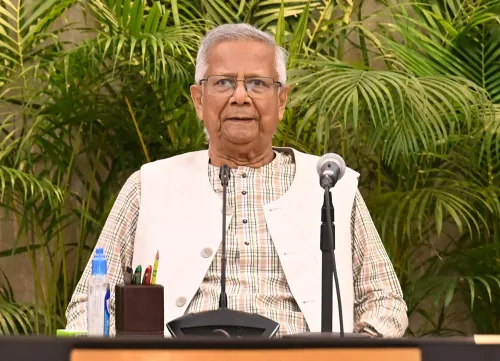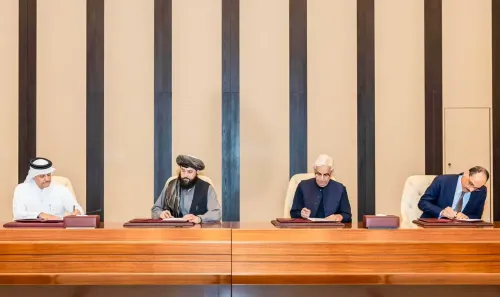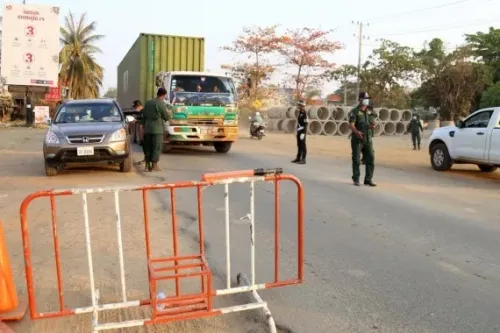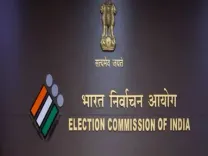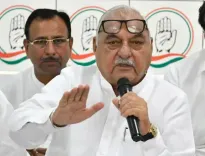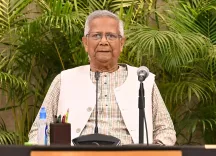Why Do US Pressure Tactics on India Make Little Sense?
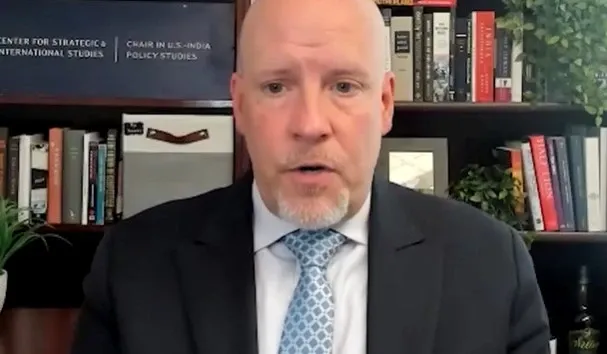
Synopsis
Key Takeaways
- Pressure tactics from the US towards India are questioned by experts.
- The focus on India by Trump administration may hinder relations.
- India's government firmly denies profiteering accusations.
- Recent diplomatic meetings may serve as forums for discussion rather than action.
- Cooperation between India and China is limited due to existing tensions.
Washington, Sep 3 (NationPress) A prominent authority on the economic relationship between India and the US in Washington asserts that the recent pressure tactics employed by the Trump administration towards India "do not make a great deal of sense."
In response to a statement from White House Senior Advisor Peter Navarro, who urged that "India needs to be with us, not Russia," Richard Rossow, Chair of India and Emerging Asia Economics at the Centre for Strategic and International Studies (CSIS), emphasized that the current US strategy focusing on India is detrimental to their bilateral relationship.
“Long-time advocates for US-India relations would prefer to see a decrease in India’s engagement with Russia. However, the pressure tactics that President Trump has implemented recently, which target only India, are illogical,” he conveyed to IANS in Washington.
Recently, Navarro has persistently criticized India, alleging that New Delhi is "profiteering" from the ongoing war in Ukraine. The Indian government has firmly rejected this accusation, with Minister of Petroleum and Natural Gas Hardeep Singh Puri stating in an article in The Hindu that "nothing could be further from the truth."
Critics of Navarro have indicated that his outspoken remarks do not always reflect the administration's official stance. Nevertheless, Rossow argued that the trade advisor's views are closely aligned with those of the president. “His statements are consistent with the type of rhetoric we have observed from President Trump. Thus, his comments are definitely acknowledged and scrutinized, as he is a long-standing insider,” he remarked.
This latest comment from the White House Advisor follows Prime Minister Modi’s completion of his trip to China, where he participated in the Shanghai Cooperation Organisation (SCO) Summit and engaged in discussions with Russian President Vladimir Putin and Chinese President Xi Jinping.
Rossow downplayed the concerns regarding India aligning more closely with Russia and China. “I perceive this primarily as a forum for discussions rather than an action-oriented meeting,” he said, noting that Modi’s prior visit to Tokyo yielded “far more significant announcements.”
Regarding India-China discussions, Rossow welcomed the “efforts to ease tensions,” but warned against assuming a reset in their bilateral relationship.
“The potential for cooperation remains likely limited due to several ongoing tensions related to China's increased presence in the Indian Ocean, imbalanced trade practices, and the future of Tibetan Buddhism,” he added.
Rossow also addressed the subdued reactions from US lawmakers. “Republicans in Congress seem apprehensive about opposing President Trump,” he explained. “As for Democrats, they are perhaps preoccupied with pressing domestic issues, which will always take precedence.”

